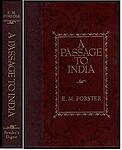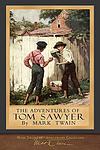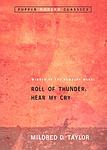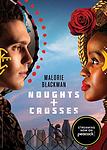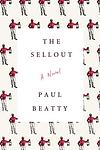The Greatest "Fiction, Race Relations" Books of All Time
Click to learn how this list is calculated.
This list represents a comprehensive and trusted collection of the greatest books. Developed through a specialized algorithm, it brings together 300 'best of' book lists to form a definitive guide to the world's most acclaimed books. For those interested in how these books are chosen, additional details can be found on the rankings page.
Genres
The category of "Race Relations" in books refers to literature that explores the complex and often fraught interactions between people of different racial and ethnic backgrounds. These books may examine issues such as prejudice, discrimination, and inequality, as well as the ways in which individuals and communities navigate these challenges. They may also explore themes of identity, belonging, and cultural exchange, offering insights into the diverse experiences of people from different racial and ethnic backgrounds. Overall, the category of "Race Relations" seeks to promote greater understanding and empathy across racial and ethnic lines, and to encourage dialogue and engagement around issues of race and diversity.
Countries
Date Range
Reading Statistics
Click the button below to see how many of these books you've read!
Download
If you're interested in downloading this list as a CSV file for use in a spreadsheet application, you can easily do so by clicking the button below. Please note that to ensure a manageable file size and faster download, the CSV will include details for only the first 500 books.
Download-
1. To Kill a Mockingbird by Harper Lee
Set in the racially charged South during the Depression, the novel follows a young girl and her older brother as they navigate their small town's societal norms and prejudices. Their father, a lawyer, is appointed to defend a black man falsely accused of raping a white woman, forcing the children to confront the harsh realities of racism and injustice. The story explores themes of morality, innocence, and the loss of innocence through the eyes of the young protagonists.
-
2. Adventures of Huckleberry Finn by Mark Twain
The novel follows the journey of a young boy named Huckleberry Finn and a runaway slave named Jim as they travel down the Mississippi River on a raft. Set in the American South before the Civil War, the story explores themes of friendship, freedom, and the hypocrisy of society. Through various adventures and encounters with a host of colorful characters, Huck grapples with his personal values, often clashing with the societal norms of the time.
-
3. Beloved by Toni Morrison
This novel tells the story of a former African-American slave woman who, after escaping to Ohio, is haunted by the ghost of her deceased daughter. The protagonist is forced to confront her repressed memories and the horrific realities of her past, including the desperate act she committed to protect her children from a life of slavery. The narrative is a poignant exploration of the physical, emotional, and psychological scars inflicted by the institution of slavery, and the struggle for identity and self-acceptance in its aftermath.
-
4. Invisible Man by Ralph Ellison
The novel is a poignant exploration of a young African-American man's journey through life, where he grapples with issues of race, identity, and individuality in mid-20th-century America. The protagonist, who remains unnamed throughout the story, considers himself socially invisible due to his race. The narrative follows his experiences from the South to the North, from being a student to a worker, and his involvement in the Brotherhood, a political organization. The book is a profound critique of societal norms and racial prejudice, highlighting the protagonist's struggle to assert his identity in a world that refuses to see him.
-
5. Things Fall Apart by Chinua Achebe
This novel explores the life of Okonkwo, a respected warrior in the Umuofia clan of the Igbo tribe in Nigeria during the late 1800s. Okonkwo's world is disrupted by the arrival of European missionaries and the subsequent clash of cultures. The story examines the effects of colonialism on African societies, the clash between tradition and change, and the struggle between individual and society. Despite his efforts to resist the changes, Okonkwo's life, like his society, falls apart.
-
6. A Passage to India by E. M. Forster
The novel takes place in British-ruled India, where the cultural divide between the British and the Indians is explored. The story focuses on the experiences of an Indian Muslim, Dr. Aziz, and his interactions with an English woman, Miss Quested, and her elderly friend, Mrs. Moore. After an expedition to the Marabar Caves, Miss Quested accuses Dr. Aziz of assault, leading to a trial that deepens the racial tensions and prejudices between the colonizers and the colonized. The novel is a critique of British imperialism and a study of the cultural and racial misunderstandings and ill-will between the British and the Indian people.
-
7. White Teeth by Zadie Smith
This novel follows the lives of two friends, a working-class Englishman and a Bangladeshi Muslim, living in London. The story explores the complex relationships between people of different races, cultures, and generations in modern Britain, with themes of identity, immigration, and the cultural and social changes that have shaped the country. The narrative is enriched by the characters' personal histories and the historical events that have shaped their lives.
-
8. The Adventures of Tom Sawyer by Mark Twain
The book chronicles the mischievous adventures of a young boy living on the Mississippi River in the mid-19th century. The protagonist, a clever and imaginative boy, often finds himself in trouble for his pranks and daydreams. His escapades range from his romance with a young girl, his search for buried treasure, his attendance at his own funeral, and his witnessing of a murder. The narrative captures the essence of childhood and the societal rules of the time.
-
9. Giovanni's Room by James Baldwin
The novel explores themes of identity, sexuality, and societal norms in mid-20th century Paris. The protagonist, an American man, grapples with his homosexual identity while engaged to a woman. His life takes a turn when he becomes involved with an Italian bartender, leading to a tumultuous relationship filled with passion, guilt, and self-loathing. The story is a poignant examination of the human struggle for acceptance and the destructive consequences of denying one's true self.
-
10. Cry, the Beloved Country by Alan Paton
"Cry, the Beloved Country" is a novel about a black Anglican priest from South Africa's rural Natal region who embarks on a journey to Johannesburg in search of his sister and son. The priest grapples with the racial injustice and social inequality of apartheid-era South Africa, while his son becomes involved in political activism and is wrongfully accused of a crime. The novel explores themes of love, fear, and social justice, while highlighting the destructive effects of apartheid on the human spirit and the South African landscape.
-
11. Ragtime by E. L. Doctorow
Set in the early 20th century, this novel intertwines the lives of fictional characters with real historical figures, creating a vivid portrayal of America's past. The narrative follows the lives of an upper-class family in New Rochelle, New York, an African-American musician from Harlem, and a Jewish immigrant and his daughter, while also featuring historical figures like Harry Houdini, J.P. Morgan, and Henry Ford. The novel explores themes of wealth, race, and class, against a backdrop of significant historical events, such as the onset of World War I and the rise of the labor movement.
-
12. Another Country by James Baldwin
"Another Country" is a profound exploration of racial, sexual, and creative issues in 1950s Manhattan. The story follows the lives of various characters, including a jazz drummer, a Southern white woman, and a black playwright, among others. As the narrative unfolds, it delves into their struggles with identity, prejudice, and interpersonal relationships, offering a raw and unflinching portrayal of America's social and cultural landscape during a time of intense change and conflict.
-
13. Passing by Nella Larsen
"Passing" is a novel about two light-skinned African-American women, Irene Redfield and Clare Kendry, who can 'pass' as white. Set during the Harlem Renaissance, the story explores the intricacies and challenges of racial identity in 1920s America. Clare, who has chosen to live as a white woman, married to a racist who is unaware of her true heritage, risks everything when she reconnects with her childhood friend Irene, causing both women to grapple with their identities and desires, leading to tragic consequences.
-
14. Roll of Thunder, Hear My Cry by Mildred D. Taylor
Set in Mississippi during the Great Depression, this novel follows the life of a young African American girl and her family who are struggling to maintain their integrity, pride, and independence in the face of racism and social injustice. The family owns a piece of land which provides them some protection from the harsh realities of racial discrimination. The story is a poignant exploration of how they navigate through a prejudiced society, face social and economic challenges, and fight to keep their land.
-
15. Noughts and Crosses by Malorie Blackman
"Noughts and Crosses" is a thought-provoking novel set in a dystopian society where racial segregation is reversed. It follows the lives of two main characters: a girl from the ruling class (Crosses) and a boy from the underclass (Noughts). Despite their different backgrounds, they form a deep bond that eventually turns into a romantic relationship, challenging the societal norms and prejudices. The novel explores themes of love, racism, and power, offering a poignant commentary on the repercussions of societal divisions.
-
16. July's People by Nadine Gordimer
"July's People" is a novel set in a hypothetical future where South Africa's apartheid system has collapsed and the nation is embroiled in a brutal civil war. The story follows a liberal white family who, fleeing the violence, are taken in by their black servant, July, in his rural village. The book explores the power dynamics and complexities of their relationship, as they navigate this new reality where traditional roles are reversed, and grapple with issues of race, class, and privilege.
-
17. The Sellout by Paul Beatty
This satirical novel follows the story of an African-American man living in a small, agrarian town on the outskirts of Los Angeles. After his father's death, he attempts to reinstate slavery and segregation in his town as a means of creating a sense of identity for himself and his community. The novel explores themes of racial identity and equality in America, challenging societal norms and expectations through its provocative narrative.
-
18. A Lesson Before Dying by Ernest J. Gaines
Set in the pre-Civil Rights South, the novel explores the story of a young black man wrongfully accused and sentenced to death for a crime he didn't commit. A local schoolteacher, at the request of the man's godmother, attempts to help the condemned man gain a sense of dignity and self-worth in the final days of his life. The story grapples with issues of racial inequality, justice, humanity, and moral obligation.
-
19. The Grass Is Singing by Doris Lessing
Set in 1940s Southern Rhodesia (now Zimbabwe), this novel explores the life of a white woman, Mary, who marries a poor farmer, Dick Turner, and moves to the African veld. The story delves into their failing farm, their troubled marriage, and the racial tension surrounding their life. The isolation and harsh African environment take a toll on Mary's sanity, leading to a complex and ultimately fatal relationship with her black houseboy, Moses. The book provides a stark examination of the inherent racism of colonialism and the tragic consequences it can have on both the oppressors and the oppressed.
-
20. On Beauty by Zadie Smith
This novel is a contemporary, multicultural exploration of family life, love, and identity. It follows the lives of two mixed-race families, the Belseys and the Kipps, who are linked by their shared professions in academia and a complex web of marital and extramarital relationships. The story is set against the backdrop of Wellington, a fictional New England town, and explores themes of race, class, and cultural clash. It also delves into the world of academia, examining the politics and conflicts that arise in that environment.
-
21. Fried Green Tomatoes by Fannie Flagg
The novel is a heartwarming tale of friendship and love that transcends the boundaries of time and age. Set in Alabama, it alternates between two storylines: one in the 1980s where an unhappy housewife befriends an elderly woman in a nursing home who tells her the story of an indomitable woman in the 1930s. The other story focuses on the life of that woman who runs a café with her sister-in-law, their strong bond, and the murder mystery surrounding them. The narratives intertwine to create a touching and inspiring story about the power of female friendship, resilience, and courage.
-
22. The Fortress of Solitude by Jonathan Lethem
The novel follows the lives of two boys growing up in Brooklyn, New York in the 1970s. Despite their racial differences, one being white and the other black, they form a deep friendship bonded by their shared interest in comic books, music and a magical ring that grants them superpowers. As they grow older, their paths diverge due to their racial and societal differences, with one becoming a successful music journalist and the other succumbing to a life of crime. The book is a profound exploration of race, identity, friendship and the impact of gentrification.
-
23. Strange Fruit by Lillian Smith
"Strange Fruit" is a controversial novel set in the 1920s South, which explores the tragic consequences of a forbidden interracial relationship between a white man and a black woman. The narrative delves into the deeply ingrained racial prejudice, hypocrisy, and societal norms of the era, leading to a tragic end for the couple. The book is a powerful indictment of racism and a plea for understanding and change.
-
24. The Absolutely True Diary of a Part-Time Indian by Sherman Alexie
The book is a semi-autobiographical novel that follows a Native American teenager who leaves his school on the Spokane Indian Reservation to attend an all-white high school in a neighboring town. The protagonist grapples with his own identity, the perceptions and prejudices of his new classmates, and the harsh realities of life on the reservation. Throughout the story, he uses humor and his passion for drawing cartoons to navigate the challenges he encounters.
-
25. The Keepers of the House by Shirley Ann Grau
The novel tells the story of a wealthy, prominent Southern family, the Howlands, who have lived on the same plot of land in Alabama for over a century. The narrative is marked by the scandalous interracial relationship between the patriarch, William Howland, and his African-American housekeeper, Margaret Carmichael. Their secret relationship and the children it produces are kept hidden until William's death, when his granddaughter, Abigail, uncovers the truth, leading to a dramatic confrontation with the racially prejudiced townspeople. The book explores themes of race, family legacy, and the destructive power of bigotry.
Reading Statistics
Click the button below to see how many of these books you've read!
Download
If you're interested in downloading this list as a CSV file for use in a spreadsheet application, you can easily do so by clicking the button below. Please note that to ensure a manageable file size and faster download, the CSV will include details for only the first 500 books.
Download




